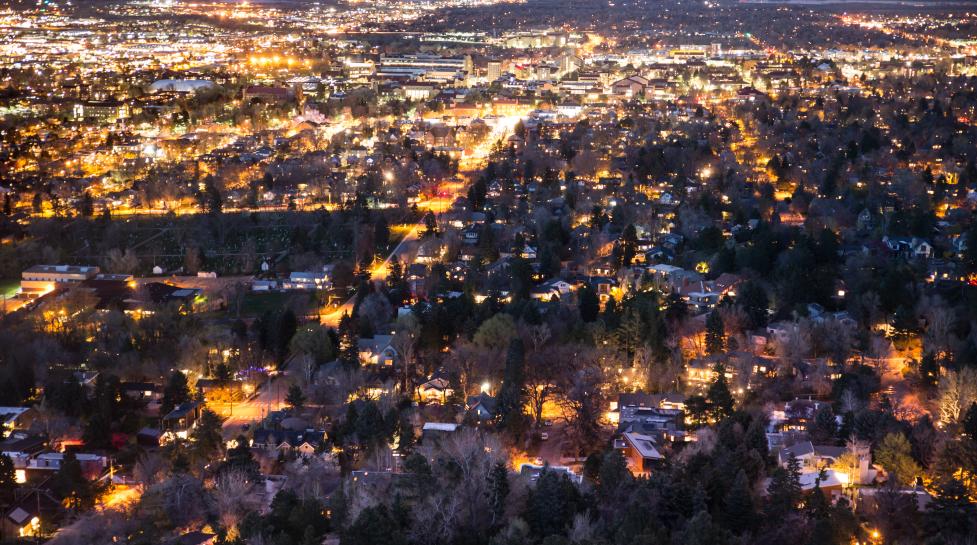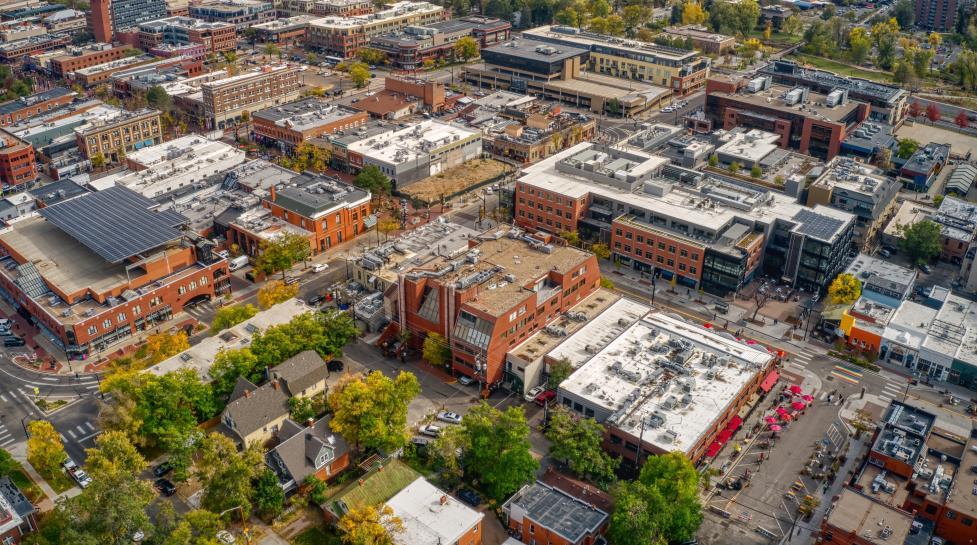A review of local climate stories from 2024.
Holiday Closures
In observance of the Presidents Day Holiday on Monday, Feb. 16, the City of Boulder is adjusting its operations schedules.
2024 was a busy year, from advancing groundbreaking climate policies to launching new programs that empower community action and connection, the city has been hard at work building a better climate future for Boulder and beyond.
While the realities of a changing climate can be overwhelming, we continue to focus our efforts on driving meaningful progress toward our goals. The truth is every climate action matters—not only for its impact but for how it empowers us to move from despair to hope. Climate action builds resilience, strengthens connections and sparks joy, and we should not forget that.
Here are some of the climate actions, both big and small, we accomplished in 2024. Let’s reflect and look ahead together.

Boulder’s 2023 Greenhouse Gas Inventory revealed a 7% emissions reduction from 2022, a 24% decrease since 2018, and a remarkable 41% reduction since 2005, marking significant progress toward the city’s climate goals.
These achievements reflect the community’s dedication to reducing its carbon footprint and advancing the city’s targets of a 70% reduction by 2030 and net-zero emissions by 2035. The inventory pinpointed building electricity as a key source of progress, with emissions falling due to cleaner energy sources and reduced consumption. Additionally, Boulder, in collaboration with Xcel Energy, met its 2030 goal of 100 megawatt of local renewable energy generation, exemplifying the power of partnerships in achieving a low-carbon future.
Read more: Boulder's emissions inventories.

This year marked continued progress in Boulder’s lawsuit against Exxon and Suncor, holding them accountable for their role in driving climate alteration and harming the community. Fossil fuel companies made billions promoting fossil fuel use while concealing and misrepresenting its dangers, contributing to the worsening impacts of climate change. These effects, such as severe wildfires, shrinking snowpack, heat waves and prolonged droughts, are straining resources and placing an unfair burden on taxpayers. The lawsuit highlights the need for accountability, arguing that those who profit from climate harm should help address its costly consequences. Despite attempts to move the case to federal court, Boulder successfully maintained it in state court, ensuring that the fight for climate justice continues.

We successfully piloted a program that combined electric vehicles (EVs) with affordable housing to advance sustainability. The program introduced bidirectional charging stations, which allowed energy to flow between buildings and vehicles. This cutting-edge technology helped lower energy costs, improved grid stability and promoted equitable access to clean transportation. The initiative demonstrated Boulder’s commitment to innovative solutions, setting the stage for expanded clean energy efforts across the community.

The Community Forestry Corps engaged young people in meaningful climate action while advancing efforts to strengthen Boulder’s urban forests. Urban trees play a critical role in mitigating climate change by reducing heat, a growing concern for community health and safety. Through this program, participants planted and cared for trees in under-shaded areas and collected heat data to guide strategies for managing extreme temperatures. These efforts focused on neighborhoods with limited tree cover, which past mapping revealed as disproportionately affected by heat, particularly in low-income and dense urban areas. The program highlighted the dual benefits of expanding the city’s tree canopy: enhancing climate resilience and fostering youth leadership in nature-based solutions.
Read more: Introducing Boulder's Community Forestry Corps

Boulder is taking a bold move toward a cleaner, healthier future with a $199.7 million grant from the EPA’s Climate Pollution Reduction Grants program. Secured in partnership with the Denver Regional Council of Governments (DRCOG), this investment will cut emissions, improve air quality, boost public health, and create green jobs across the region.
Over the next five years, the grant will help upgrade 60,000 homes and businesses, prioritizing low-income and disadvantaged communities. By replacing fossil fuel-burning appliances and driving innovation in clean energy, the initiative will reduce greenhouse gas emissions while delivering economic and health benefits.
Read more: City of Boulder Celebrates $200M EPA Grant

Throughout 2024, the city’s climate team organized a series of community conversations to engage community members in Boulder’s sustainability efforts. These events focused on key areas of climate action: energy, circular economy and nature-based climate solutions. The conversations allowed community members to learn about ongoing climate work, explore how they can contribute and participate in interactive demonstrations. Input gathered at the events provided valuable insights, highlighting the areas where continued effort is needed to meet the city’s climate goals. Through these conversations, Boulder emphasized the importance of community involvement in achieving a more sustainable future.

The City of Boulder expanded its e-bike voucher program, launched in 2023, to make cleaner transportation more accessible. The program, funded by the city’s Climate Tax, provided income-qualified residents with vouchers to help offset the cost of e-bikes, including e-cargo and adaptive models. The initiative supported Boulder’s broader climate and transportation goals, encouraging residents to adopt healthier and more sustainable travel options.
Read more: City of Boulder Offers E-bike Vouchers to Income-Qualified City Residents

This year, the city purchased over 4,400 streetlights from Xcel Energy, marking a key step in the city’s effort to enhance safety, efficiency and sustainability. Beginning in 2025, Boulder will transition to energy-efficient LED fixtures, which will reduce pollution and carbon emissions tied to electricity generation, lower maintenance costs and integrate smart technology for improved performance. The new smart controls will allow for outage reporting and additional features such as dimming capabilities.
Read more: City of Boulder Acquires Streetlights from Xcel

Boulder took a major step toward achieving its zero-emissions electricity goal with the launch of the Prime Time Virtual Power Plant (VPP) project. This initiative aims to integrate rooftop solar, battery storage, electric vehicles and other renewable energy technologies into the city's electric grid. The VPP creates an interconnected network of distributed energy sources that work together, offering greater flexibility and resilience than traditional power plants. By leveraging smart technology, the VPP helps balance and optimize energy generation and storage across homes, businesses and community assets.
Read more: A Step Toward Zero Emissions with Virtual Power Plant
Our Climate Initiatives newsletter will keep you up to date on local climate action, progress on climate goals and steps you can take to combat the climate crisis.